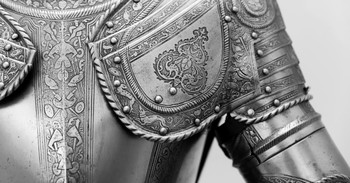
It is shocking that nations that call themselves Christian should fight each other. But it happens, and although the obvious causes may be religious, contributing causes are economic and political. The Thirty Years' War was a struggle to control Europe, and the whole continent was involved. In it Catholics fought Protestants and Protestants fought Catholics with terrible ferocity. Its results were devastating. In wide areas of Germany (which bore the brunt of the fighting) half of the people died from famine, battle, disease and massacre.
On this day, October 24, 1648, the Peace of Westphalia was signed, bringing the desperate conflict to an end. Peace could have come sooner, but Cardinal Richelieu of France was not satisfied with the position France would hold if a treaty were signed in 1635. In his opinion, the Holy Roman Empire was left too strong. And so the struggle continued for thirteen terrible years more.
In the end, Richelieu got his way. The Peace of Westphalia broke the power of the Holy Roman Empire. For Christians, the peace was an important step in the direction of freedom of conscience. For the first time European nations accepted the fact that they could no longer force their brand of faith on states that did not want it. When the Holy Roman Empire gave up its control of a number of German states, it was in effect agreeing that they might remain Protestant.
A guarantee was established to prevent future differences arising in the empire. Every elector, prince and state of the Holy Roman Empire was established and confirmed in its ancient rights, prerogatives, liberties, and privileges, its free exercise of territorial rights, "as well ecclesiastick as politick lordships"--meaning each prince was free to choose the religion of the area he ruled. Through the Peace of Westphalia, even the great evil of the Thirty Years' War produced a little good.
Bibliography:
- Durant, Will and Ariel. The Age of Reason Begins. New York: Simon and Schuster, 1961.
- Gindely, Anton. History of the Thirty Years' War. New York, Putnams, 1884.
- "Wetphalia, Peace of." The Oxford Dictionary of the Christian Church. Edited by F. L. Cross and E. A. Livingstone. Oxford, 1997.
- Various encyclopedia and internet articles.
Last updated April, 2007.


